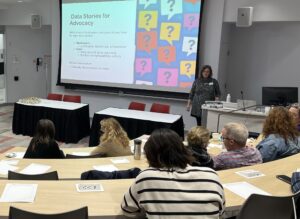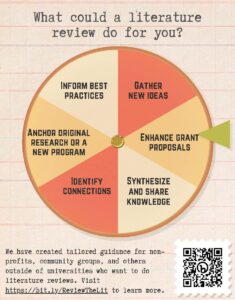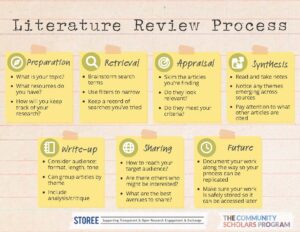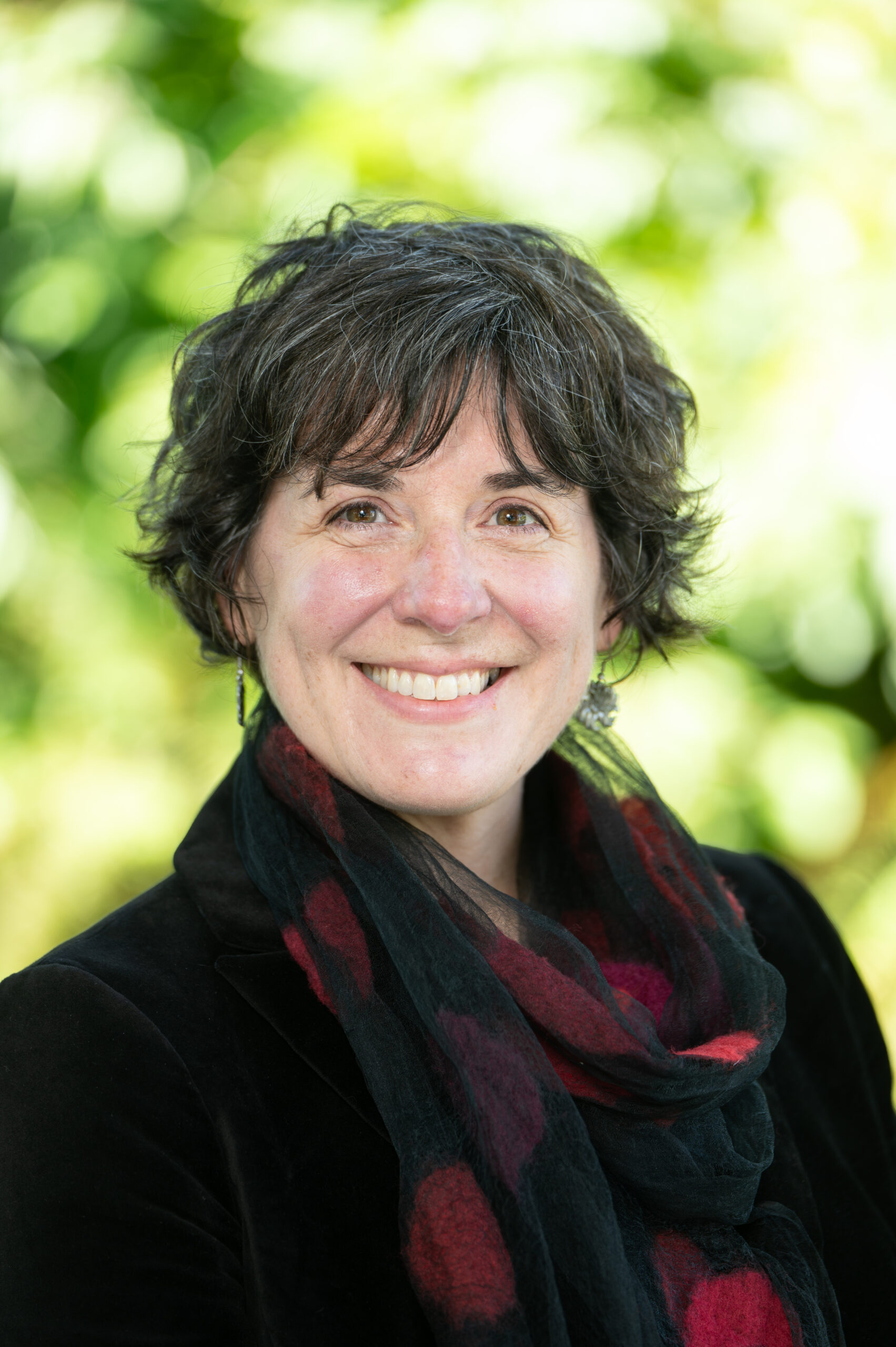Setting the Course and Embracing the Journey: Reflections on Knowledge Mobilization in the Canadian Research Context
Setting the Course and Embracing the Journey: Reflections on Knowledge Mobilization in the Canadian Research Context
Heather O’Brien and Kristina McDavid
Knowledge mobilization (KMb) is the movement of research findings between and within academic and non-academic settings. In Canada, KMb is part of university strategic plans and funding agency mandates. The Social Science and Humanities Research Council (SSHRC), a key funder of library and information science (LIS) research, asks applicants to share a KMb plan when applying for many of its grants. However, McGregor and colleagues (2021), comparing the Canadian context to the UK and Australia, critique this approach. They argue that it might be more meaningful to learn about what people actually accomplished through a research project, rather than asking for a description of what they intend to do.
—Effective KMb hinges on many factors: access to tools and training, time, and knowing how best to communicate with target audiences—
In a recent SSHRC-funded partner development project, Supporting Transparent and Open Research Engagement and Exchange (STOREE), we constructed a KMb plan as part of our funding application. Our work focused on making research more accessible, relevant to, and useful for non-academic audiences, and supporting scholars to change practices around research sharing. We had an ambitious list of groups we hoped to connect with, including university students and researchers, LIS professionals and associations, community members, and non-profit organizations (NPO). Effective KMb hinges on many factors: access to tools and training, time, and knowing how best to communicate with target audiences (e.g., Cattlin & Given, 2024; Elliot et al., 2023). Our anticipated modes of KMb were traditional research products like journal papers. More importantly, we wanted to experiment with alternative outputs such as infographics, videos, blogs, and in-person workshops. It was critical to centre open access (where appropriate) and clear language because publisher paywalls and disciplinary jargon make research inaccessible to many people.
Reflecting on the project, team composition, how we worked together, sub-project processes and outcomes, and individual learnings, we gained insights on making alternative outputs and KMb more broadly.
STOREE team members were academic librarians, students, and faculty from different institutions and areas of expertise. Relationships were fluid and non-hierarchical, leading to new collaborations and sub-projects over time. The group’s composition helped us examine ideas from researcher, practitioner, and learner perspectives.

One of STOREE’s sub-projects involved interviewing LIS professionals about their KMb work and how they participated in “moving” research within and between communities. Interview participants said they struggled with how to show the value of relational KMb work to their institutions. We shared some of these results in traditional outputs, but we wanted to reflect what we heard back to interviewees and help address this challenge. We organized an all-day storytelling workshop to inspire action. Dr. Kate McDowell (School of Information Sciences, Illinois Urbana-Champaign) gave the keynote address, and we also heard from a stellar panel of two academic librarians, a critical archives scholar, and a journalist. This event was attended by 55 LIS professionals from regional memory institutions.
Another subproject focused on literature reviews in non-academic settings and was inspired by two local affiliated projects: the Downtown Eastside Research Access Portal (DTES RAP) and the Community Scholars Program (CSP). The DTES RAP seeks to improve access to academic and community-generated research related to the DTES neighborhood in Vancouver, BC. The CSP is a no-fee gateway for NPO staff or ‘Community Scholars’ to access published research. Drawing on experience working with non-university communities, two co-investigators and a student researcher explored applications for literature reviews in non-academic settings, e.g., funding applications, evidence-based decision-making, program design. The findings inspired an online guide focusing on freely available resources and a promotional postcard (see below) that we mailed to BC Community Scholars and others who might benefit.


The STOREE team engaged in a variety of internal information-sharing and reflection exercises during the project. Meetings included free-ranging discussions about interim findings, hurdles, and future directions. Students wrote blog posts about their work, reflecting on its meaning and intersections with their studies. Towards the end of the project, two team members conducted in-depth interviews with 8 collaborators, collecting detailed reflections on STOREE’s many sub-projects. The interviews resulted in a comprehensive overview of STOREE and its interrelated outputs, as well as ideas for future work.
From these examples, we observe some themes. Throughout the grant, we considered our processes and ways of working together. We recognized the value of sharing with each other and leveraging varied knowledge and experience to identify connections and opportunities. Ideas from all team members were welcome and actionable and we made space for creativity. Desired outcomes were not predetermined, but arrived at through reflection on findings, input from team members, and consideration of audience and format. Whenever possible, we aimed for multidirectional knowledge exchange, centred community (with “community” being different for every project), and tailored outputs. For instance, the storytelling workshop was built around a key issue raised in our interview study: LIS professionals’ challenge to show the value of KMb work. Speakers were invited to embroider further on the theme of relational KMb work and is valuation, and participants were encouraged to apply the learning in their own contexts.
While we adhered to some aspects of the original KMb plan, we allowed our research findings and team process to inform and inspire our KMb work. Team members enjoyed being creative and were heartened by positive feedback and engagement from community members. In particular, the storytelling workshop was illuminating and enjoyable for participants, speakers, and organizers alike. We would not have been able to envision this event prior to the start of the project – it required inputs, i.e., study findings, the varied knowledge and experience of collaborators. In allowing for some uncertainty and embracing the KMb journey, we were able to hold space for work that was both uplifting and impactful.
References
Cattlin, J., & Given, L. M. (2024). Information relations for social change: exploring the information behaviour of academics undertaking impact work. Information Research: An International Electronic Journal, 29(2), 230–245. https://doi.org/10.47989/ir292824
Elliott, S. A., Scott, S., Bialy, L., Wright, K., & Hartling, L. (2023). Exploring the creation or adaptation of knowledge mobilization products for culturally and linguistically diverse audiences: A scoping review. medRxiv, 2023-09.
MacGregor, S., Phipps, D. J., Malcolm Edwards, C., Kyffin, J., & Portes, V. (2021). Institutionally embedded professionals’ perspectives on knowledge mobilization: findings from a developmental evaluation. Canadian Journal of Higher Education, 51(3), 166-183. https://doi.org/10.47678/cjhe.vi0.189103
Cite this article in APA as: O’Brien, H., & McDavid, K. Setting the course and embracing the journey: Reflections on knowledge mobilization in the Canadian research context. (2025, April 30). https://informationmatters.org/2025/04/setting-the-course-and-embracing-the-journey-reflections-on-knowledge-mobilization-in-the-canadian-research-context/
Authors
-

Heather O'Brien is a Professor at the School of Information, University of British Columbia, Vancouver, Canada.
View all posts -
Kristina McDavid is a librarian who coordinates library resources and services across the University of British Columbia’s distributed undergraduate medical program. Kristina has been involved with UBC Learning Exchange’s Making Research Accessible Initiative since its inception in 2015 and currently co-chairs its steering committee. She has served as Executive Director of the Council of Prairie and Pacific University Libraries and has co-led several large technology implementations at UBC Library. Her research interests include the role of information professionals in knowledge exchange and the democratization of information.
View all posts





